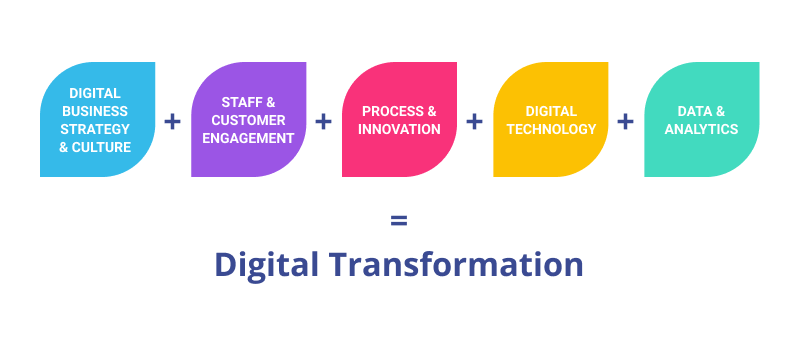The Power of Digital Transformation in Modern Businesses

In today’s rapidly evolving business landscape, digital transformation has become more than just a buzzword; it is a necessity for survival and success. Digital transformation refers to the integration of digital technologies into all aspects of a business, fundamentally changing how it operates and delivers value to its customers. Let’s explore the power of digital transformation and its impact on modern businesses.
1. Enhanced Customer Experience: Digital transformation allows businesses to understand and meet customer expectations more effectively. By leveraging data analytics and automation, companies can personalize customer interactions, offer seamless omni-channel experiences, and provide real-time support, leading to increased customer satisfaction and loyalty.
2. Improved Operational Efficiency: Through the adoption of digital tools and technologies, businesses can streamline and automate their processes, reducing manual efforts, minimizing errors, and optimizing resource allocation. This efficiency translates into cost savings, faster time-to-market, and improved overall productivity.
3. Data-Driven Decision Making: With digital transformation, businesses have access to vast amounts of data. By harnessing the power of data analytics and artificial intelligence, organizations can gain valuable insights into customer behavior, market trends, and operational performance. These insights enable data-driven decision making, empowering businesses to make informed choices and stay ahead of the competition.
4. Agile and Innovative Culture: Digital transformation encourages a culture of agility and innovation within organizations. By embracing new technologies and fostering a mindset of experimentation, businesses can adapt to market changes quickly, identify emerging opportunities, and drive continuous improvement. This culture allows companies to stay relevant in dynamic business environments.
5. Business Model Disruption: Digital transformation has the potential to disrupt traditional business models and create new market opportunities. Companies that proactively embrace digital technologies can redefine their value propositions, explore new revenue streams, and enter untapped markets. This adaptability is crucial for long-term sustainability and growth.
6. Competitive Advantage: In an increasingly digital world, businesses that lag behind in digital transformation risk being left behind by more agile and technologically advanced competitors. By embracing digital transformation, organizations can gain a competitive edge, differentiate themselves in the market, and secure their position as industry leaders.
In conclusion, digital transformation is not merely a choice; it is an imperative for businesses in the modern era. By leveraging digital technologies, companies can enhance customer experiences, improve operational efficiency, foster data-driven decision making, cultivate an agile culture, disrupt traditional business models, and gain a competitive advantage. Embracing digital transformation is no longer an option it is a strategic necessity for businesses to thrive and succeed in today’s digital-first world.




